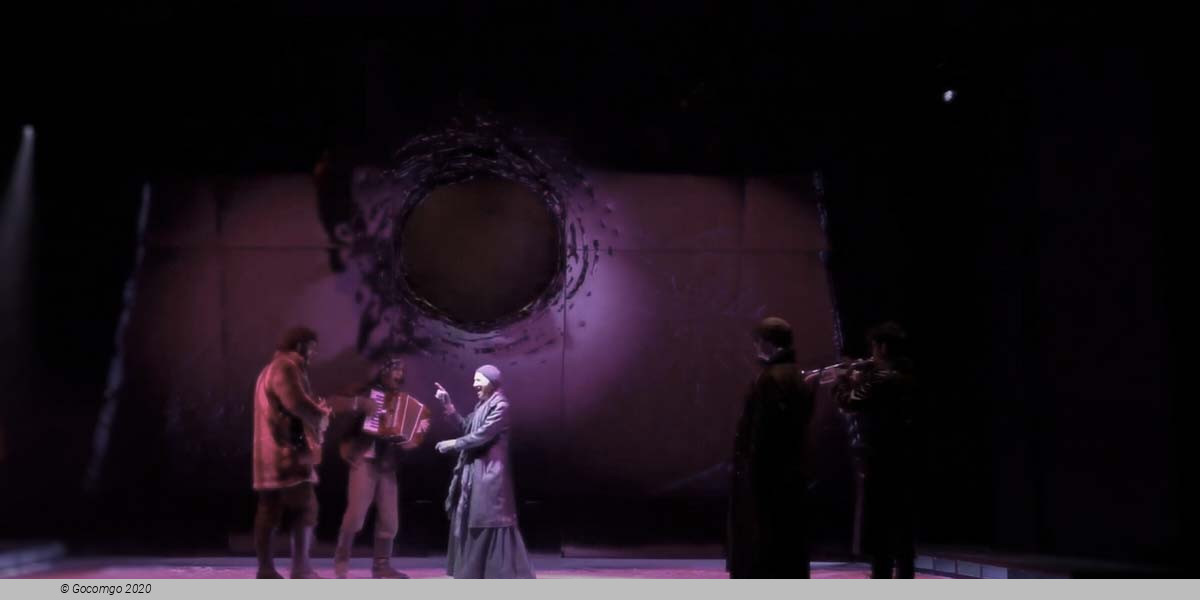Teatro Civico (La Spezia) (La Spezia, Italy)
Teatro Civico (La Spezia)

The Civic Theater is the most important theatrical structure in La Spezia and is located in the historic center of the city in Piazza Mentana. By extension, it is the third theater in Liguria.
History
The first construction
It was the first theater to be built in La Spezia: in fact the San Carlo, considered the oldest in the city, had been obtained from the homonymous church deconsecrated during the period of the Ligurian Republic, whose building was first used as a public school and later, for initiative of an amateur dramatics specialized in the Alfieri repertoire, transformed into a theater.
In the pre-arsenal La Spezia cosmos, albeit slowly expanding, a new theater was therefore necessary so that the city could adapt to an image more responsive to the needs of the society that was forming. Thus its construction was unanimously approved by a municipal resolution of April 24, 1839. From this resolution to the laying of the first stone, which took place on July 6, 1840 in the presence of the Mayor Lorenzo Federici, 14 months passed, especially to find the necessary funds.
The Genoese architect Ippolito Cremona was called to build the theater, who designed a building in perfect compliance with the canons of the most rigorous neoclassicism, with a longitudinal development of forty meters, a width of twenty, four orders of boxes and a linear facade with a loggia surmounted by a tympanum and decorated with three marble statues. (The facade underwent a first modification in 1889 to increase the capacity).
The curtain of the theater was painted by the painter Francesco Gonin, famous in those years for having illustrated I Promessi Sposi in 1842 and, subsequently, The History of the Infamous Column. The foyer was embellished with some witty cartoons dedicated to the La Spezia costume.
The inauguration
It took place on July 18, 1846, greeted with enthusiasm: the Civic deputation in the posters that for days had announced the event, exhorted the "Merchants to keep reasonable prices to invite as many foreigners as possible". On the bill, Ernani by Verdi, Gemma di Vergy by Donizetti, and a comic opera, whose emblematic title seemed to express the mood of La Spezia: it was Chi la dura la vince! by Luigi Ricci. Soprano with the "serious" repertoire, Teresina Parodi, while the comic opera was entrusted to Celestina Corbetta
Thus began the forty years of cultural life of the Civic Theater, which for the city became an agglomerating point not only artistic, but also worldly-social and political of the city mainly due to the master Domenico Cortopassi. For a certain period the foyer was in fact the seat of the meetings of the Municipal Council and the city club, the civic casino, was also housed on the first floor.
In 1873, the first nucleus of the Civic Museum was housed in the rooms on the ground floor of the Theater, born from a first donation of shells and crustaceans by Cesare Podenzana, to which, in 1866, the collection of rare shells donated by the heirs would be added. of the Marquis Gio Batta De Nobili, as attested by a letter of thanks sent on 17 May 1866 by the Mayor Bartolomeo Ricco to Valente Carletti, administrator of the De Nobili.
The renovation in the twentieth century
The entire building was completely renovated, taking on its current appearance in the years 1932-33, by the architect Franco Oliva in collaboration with the sculptor Augusto Magli who took care of the external and internal decorations, as well as those of the dome placed on the roof. of the hall.
The five statues (the Music, the Tragedy, the Plastic Art, the Gulf and the City of La Spezia) that decorated the facade and the entrance of the old Cremona theater were removed and placed in the public gardens.


